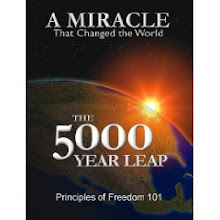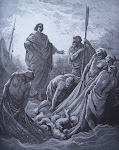THE MODERN ASSAULT AGAINST THE HISTORICITY OF THE OLD TESTAMENT HAS BEEN BEACHED ON THE SHORES OF ARCHAEOLOGY
.
The Biblical Archaeological Review, by no means a conservative Christian magazine, recently published a surprising article by Yosef Garfinkel entitled, “The Birth and Death of Biblical Minimalism.” While Garfinkel limits his discussion to the last 30 years among certain modern archaeologists working at the University of Copenhagen, biblical minimalism is the general presumption that the Biblical text cannot be a trusted source of actual verifiable history, especially with regard to the authenticity of the Old Testament. Garfinkel shows in his article that the minimalist position is no longer a viable one. Too much archaeological evidence has been uncovered. While this has not and cannot prove the inerrancy of the biblical text, it is still a far cry from the German tidal wave of skepticism that inundated the modern world back in the 1800’s when Julius Wellhausen and Ferdinand Christian Bauer dominated historical studies of the Bible with their so-called ‘higher criticism.’ .
"Repentance is thus awfully hard to come by, especially when confronted with the truth of the Bible"
Garfinkel strongly shows that even King David and his kingdom can no longer be considered a myth. This brings modern scholarship all the way back to 1,000 B.C – only 200-400 years shy of Moses himself, the very founder of Israel as a nation. These archaeological truths have placed much pressure on the biblical minimalist position. They have now been forced to redefine the time of the Iron Age in order to maintain their skeptical legacy toward historicity of the Davidic kingdom. This is a far cry from the past when many a scholar just re-arranged the biblical chronology to suit their ‘higher critical’ theories superimposed on the biblical text. Time and time again, biblical minimalists have been forced to retreat from their earlier positions, only to stubbornly stop at some other line of reasoning. Repentance is thus awfully hard to come by, especially when confronted with the truth of the Bible.
"These archaeological truths have placed much pressure on the biblical minimalist position"
Ever since German skepticism systematically spearheaded the attacks against biblical authenticity, the assumption was that much of the Old Testament was written much later than what the Hebrew text records about itself. Since the entire Hebrew Bible was not fully organized until after the Babylonian exile (500’s B.C.), it would therefore be impossible to say with any certainty whether or not the historical details described throughout much of the Old Testament actually occurred as the record indicates, “with that late date they would couple an ultra low view of the reality of that history, dismissing virtually the whole of it as pure fiction, as an attempt by the puny Jewish community in Palestine to write themselves an imaginary past as a form of national propaganda.”[i]
Many also presumed that the older Hebrew writings were based on untrustworthy oral traditions. The Hebrews were considered to be an uneducated, agrarian society who naively believed in miracles. This religious childishness thus made them incapable of a historical consciousness that could be considered reliable in terms of recording factual events. However, this assumption about Hebrew oral tradition has recently been proven to be another myth of the modern historical imagination. In 2005, archaeologists found a rock in a remote location in ancient Israel that had every letter of the Hebrew alphabet inscribed on it. It too can be dated as far back as 1,000 B.C. The remote location that this alphabet was found in shatters the idea that much of the Old Testament is largely based on oral tradition. The force of this evidence is truly profound – if the outback areas could write, then what of the larger cities?
"It (the Old Testament) constantly pinpoints actual dates, eras, specific geographical locations and historical figures, along with a multitude of ancient names that would have been lost had it not been for the Hebrew Scriptures"
Thanks to ‘higher critical’ theories, many modern historiographers have presumed that the Hebrews followed the Greek method of oral tradition in the writing of their holy books, never mind the fact that ancient Greek tradition had very little interest in history. Indeed, the Greeks did not jump onto the historical bandwagon until the 400’s B.C.[ii] with Herodotus, lagging far behind the Hebrews. Although occasional miracles do show up in the Bible from time to time, much of the entire Old Testament reads like a history book, very unlike ancient Greek mythological accounts. The Old Testament methodically goes through several thousand years of general and Jewish history from the beginning. It constantly pinpoints actual dates, eras, specific geographical locations and historical figures, along with a multitude of ancient names that would have been lost had it not been for the Hebrew Scriptures. Too many moderns have purposefully tried to associate Greek myths with Hebrew religion in order to dismiss the historical tradition of the latter. However, as the archaeological evidence of Old Testament Israel continues to mount with an ever increasing plethora of artifacts to draw from, it is now time for modern historians of all persuasions to face the fact that the Hebrew religion cannot be compared with Greek religion. It has become quite clear that the Hebrew record of miracles in the Old Testament has in no way clouded the historical judgment of the prophetic writers of Scripture with mythological distortions or religious propaganda.
Most importantly is that their truthfulness with regard to lesser issues like history and politics also strongly suggests that the ancient Hebrew religious beliefs may be just as authentic as well. Meaning that if the Hebrew writers were so good at telling the truth with regard to minor secular historical details, this further indicates that the religious miracles and the larger revelatory events surrounding those particular miracles may not be mythological as many have presumed. Still further – if Hebrew history is authentic, then what of its prophecies? Religion or myth cannot be bridged with history in ancient Greek religion, but the distance between these two camps in the Old Testament is anything but unbridgeable, and the faith required to build that bridge is not nearly as superstitious or irrational as the former would certainly be.
"Still further – if Hebrew history is authentic, then what of its prophecies?"
Isaiah the prophet largely began his prophetic ministry in the year King Uzziah died (Isaiah 6:1-13) and continued as such through the great international difficulties that characterized much of Judah’s reign under the kingly leadership of Jotham, Ahaz and Hezekiah (Isaiah 1:1). Simultaneously warning the nation of the looming Assyrian invasion that eventually devastated most of the nation coupled with the apocalyptic coming of a Messianic age that promised salvation for Israel in the future (Isaiah 1:1-2:4), Isaiah’s ministry was rooted in the historical realities of the day (Isaiah 36-39). He strongly applied the judgments of the Mosaic Law against the nation for her idolatrous Baalistic nature worship. It was precisely this behavior that invited the Assyrian invasion (Isaiah 10:1-34). On the other hand, Isaiah also prophesied the coming of Messiah and a glorious Messianic age in the last days in which Jerusalem will become the religious headquarters of the entire world where international peace, justice and equity will replace their previous judgments and warfare at the hands of godless nations (Isaiah 9:1-7). Nature will also be idyllically restored to an existence which will surpass the wonders of the garden of Eden (Isaiah 11:1-12:6).
This linear, chronological, historical and factual revelation of the Hebrew Bible as exhibited by Isaiah and all the other Old Testament prophets, stood in great contrast to the ancient pagan belief in eternal return that characterized much of Greco-Roman religion. Pagan nature worship curved history[iii] into a hopeless circle that enslaved man under the unremitting natural cycles of life, suffering, death, and rebirth. Man’s dominion over nature (Genesis 1:26-31) and his historical destiny in the apocalyptic future (Isaiah 65-66) was therefore not even a consideration among the Greeks and Romans. In the Old Testament, the history of Israel begins with Abraham in a tent, but ends with their return to the promised land from the Babylonian exile. In between those times, they were enslaved in Egypt, became a nation during the Exodus, conquered the promised land, devolved into the debauchery at the time of the Judges, rebounded with the united monarchy under Saul, David and Solomon, split into the competing kingdoms of Israel in the north and Judah in the south, and then finally both were exiled into foreign nations because of their pagan nature worship. The Old Testament thus did not curve time like the Greeks often. The Old Testament was fully aware of human development precisely because it specifically taught that man was made in God’s image, and that the distinction between nature and history was born in the opening chapters of Genesis 1-4.
"Pagan nature worship curved history into a hopeless circle that enslaved man under the unremitting natural cycles of life, suffering, death, and rebirth"
The point of Greco-Roman history, however, was not that it was going anywhere or that it would reach a Messianic-eschatological goal in the apocalypse, but that it was something to escape from. This would be accomplished either through the mythical tales of gods on the one hand (if one was superstitious), or through timeless philosophical abstractions on the other hand (if one was more rationally minded). Either way, history was largely disdained by the Greco-Roman world.[iv] It was not taken seriously as a venue for any real meaning precisely because it was subject to so much suffering, change and uncertainty.
To the Hebrew writers of the Bible, however, history had great meaning – so much so, that even the ups and downs of everyday life did not interfere with their unshakable faith in the outcome predestined by an Almighty God who created the universe out of nothing by His spoken word (Genesis 1:1-31). The Hebrews therefore took history far more seriously than the Greeks or Romans. This is readily seen by reading virtually any Old Testament book that constantly reminds its readers of one historical fact after another, “only the Jews are really a historical people, constituted as such by religion, by the act of the Sinaitic revelation. Hence the Jewish people could and can indeed understand their national history and destiny religiously, as a religious-political unity.” That the ancient Hebrew authors would take history so lightly to mischaracterize its facticity for theological purposes is thus highly unlikely. Even all of their heroes are objectively portrayed – warts, sins and all.
"Hence the Jewish people could and can indeed understand their national history and destiny religiously, as a religious-political unity"
Sadly, it has taken 150 years of archaeological research to overturn the ‘higher critical’ fantasy of many a German scholar in the 1800’s who spent an inordinate amount of time attacking the foundations of the Bible to help advance their shallow and superficial mysticism of secular human progress based on a natural theology and naturalistic principles that somehow had proved that the Bible was a sham. However, both world wars in the 20th century shattered the progressive hubris of the 19th century, only to leave the present age scarred with the angst of the so-called post-modern world. What modern historians have often failed to grasp is that their linear conception of time and the view that history is inexorably leading to a meaningful goal in the future is, in fact, rooted in the Old Testament prophetic tradition, “even the articulation of all historical time into past, present, and future reflects the temporal structure of the history of salvation. The past points to the first things, the future to the last things, and the present to a central presence which connects the past with the future through a teleological succession.”[v]
In other words, their teleological belief in secular human progress based on a modern historiography that has allegedly shown the present age far more advanced than the ancient past is in fact a philosophy of history based on the Biblical exts itself.[vi] Such a consideration may have prevented them from presuming too quickly that the Hebrew people of the past were so backward and uneducated that they could not have come up with something as advanced as the Old Testament at such an early date. Their progressive view of history blinded their interpretation of the ancient past. Will they repent? Not likely. Worse is that the damage has already been done and may not be recoverable, “if the foundations are destroyed, what can the righteous do (Psalm 11:3)?” German ‘higher critical’ theories are still being taught as fact in most academic institutions in the country, and still continues to have a tremendous influence even in many seminaries.
"Their progressive view of history blinded their interpretation of the ancient past"
Modern man has discarded the religious foundations of the Old Testament, but he has still largely retained the hopeful orientation toward the future, albeit in a secularized form. As biblical history was de-sanctified, stunningly the deification of modern progress took its place. While the hopeful outcome since World War II may not be as certain as it once was in the 1800’s, it has by no means been discarded. Modern man’s belief in political progress therefore has replaced his belief in biblical prophecies. He has faith in the future without a historical foundation that would warrant such a belief. Political hubris is now deemed far more advanced than childish faith. Is it really? At the end of the day, post-modern blind utopianism will prove to be just as illusory as the Hegelian eschatological juggernaut of the 1800’s – and this by the prophetic determination of the word of God (Psalm 2).
Mark Musser was a missionary to the former Soviet Union for 7 years. He is now a pastor. Mark is the author of two books – “Nazi Oaks: The Green Sacrificial Offering of the Judeo-Christian Worldview in the Holocaust” and “Wrath or Rest: Saints in the Hands of Angry God.”
[i] Kitchen, K.A. On the Reliability of the Old Testament, 2001, p. 2.
[ii] Collingwood, R.G. The Idea of History, p. 19-20
[iii] See especially Roman historian Livy on this.
[iv] Ibid., p. 20-25.[v] Lowith, Karl. Meaning in History, p. 185.
[vi] See especially Rolf Gruner, Philosophy of History: A Critical Essay.






















































